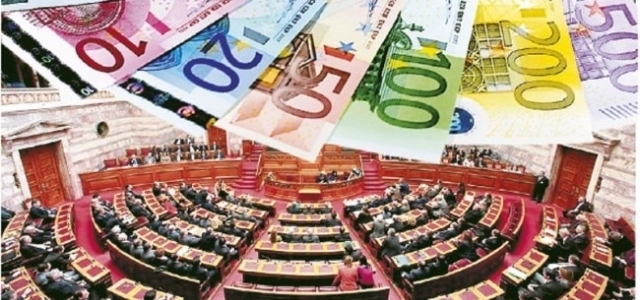
Deputy Leftheris Avgenakis began untangling the skein by revealing that the debts of PASOK and New Democracy to the domestic banking system total 244 million euro and defined the situation as striking. Avgenakis was elected with the New Democracy ballot in the last 17 June elections but he belongs to the Democratic Alliance of Dora Bakogiannis. After SYRIZA had become a real candidate to take over government, Samaras and Bakogiannis decided to unite in the second parliamentary elections, but apparently, the members of both centre-right parties have not buried deep enough the hatchet of war.
Fifty members of the state agricultural bank will first testify before the economic prosecutor for approved loans to parties that did not meet all the requirements for creditworthiness. In early July, they must submit written explanations on issues raised by the prosecution. The same procedure will be repeated for the management of five other banks - The National Bank of Greece, Marfin Bank, Piraeus Bank, Attica Bank and Eurobank EFG.
Leftheris Avgenakis presented data to the public indicating that New Democracy had borrowed about 105 million from the agricultural bank (ATEbank) and another 15 million from Piraeus Bank over the years. PASOK, in turn, had received 114 million euro from ATEbank, 10 million euro from Marfin Bank and five million from Piraeus Bank. The total value of grants to the two major political forces of Greece in the recent past is 235 million euro and the difference to 244 million euro was allocated among the smaller parliamentary groups. And the question is why PASOK received the same funding as in previous years since it was the third political force, not the first one after the last elections.
Changing the law on the funding of political parties was one of the main points in the election campaign of the Democratic Alliance this spring. Dora Bakogiannis has long insisted that the law on party funding is unconstitutional. With it, the state with the help of bank offices disposes of deposits by allocating funds from the market to the political system. "Article 2 of the Constitution protects the right of generating a value and the rights of human development. Article 1 of the protocol to the European Convention on Human Rights recently signed specifically protects property and allows seizure or blocking only in cases of public benefits or compensation," Bakogiannis said recently. She insists that if the bank funding of political parties is not revised, bank managers should be held criminally liable for unconstitutional diversion of public funds.

No comments:
Post a Comment